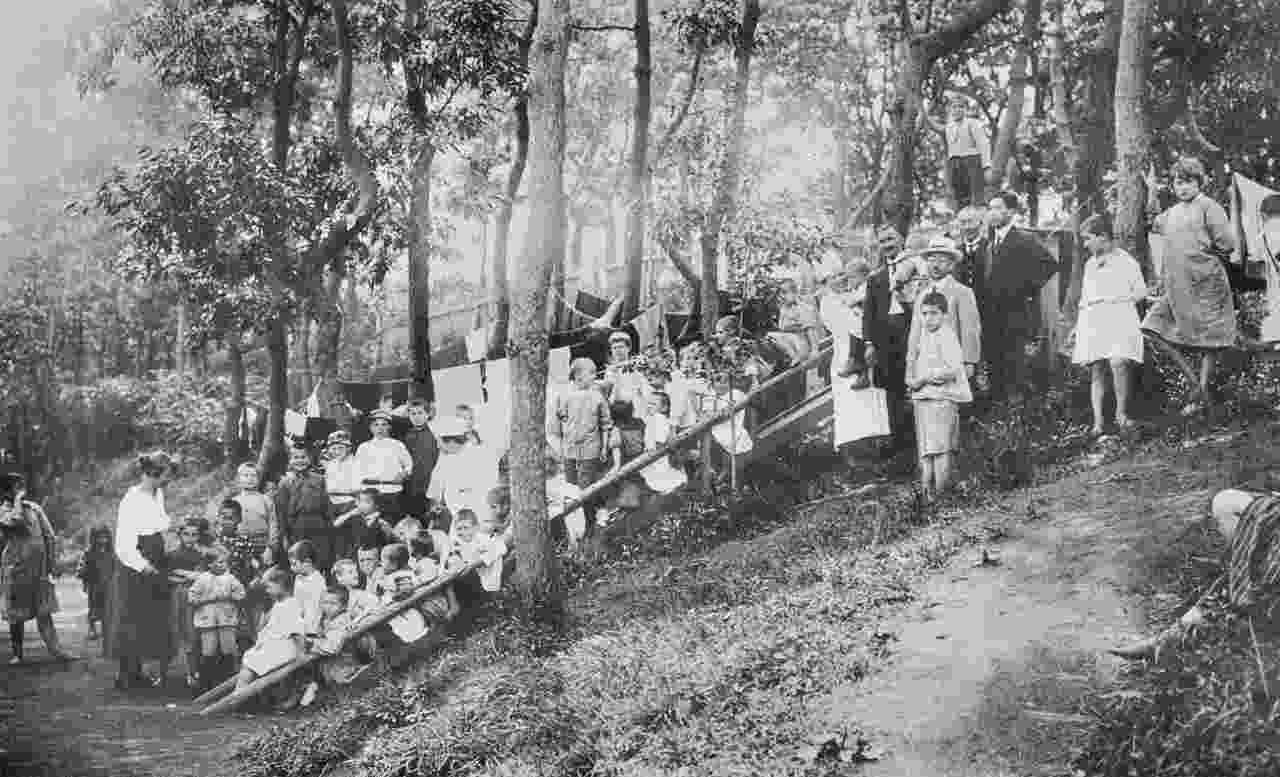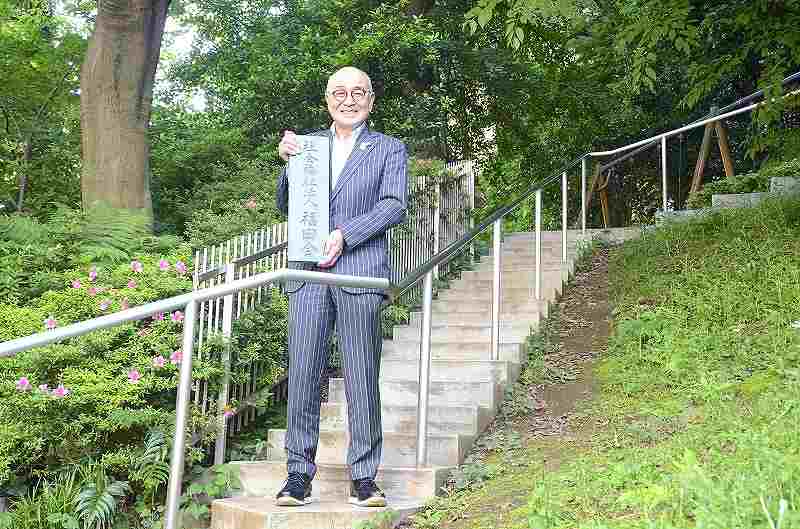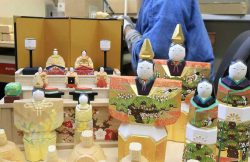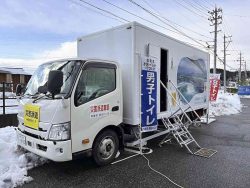
Polish orphans play on the lawn at the Fukudenkai in 1920.
12:25 JST, June 7, 2022
A century-old connection with Poland has led a Tokyo-based social welfare organization to provide support for the many Ukrainians who have taken refuge in Poland to escape Russia’s invasion.
About 100 years ago, the Fukudenkai accepted Polish orphans, and by helping the Ukrainian refugees in Poland, it sees its actions as a way to further deepen ties between Japan and Poland.
“Ukrainian orphans are facing great hardships,” said Takaaki Ota, 74, head of the Fukudenkai, which operates an orphanage and other facilities in Tokyo’s Shibuya Ward. “This time, we want to join with Poland to help children together.”
According to the U.N. High Commissioner for Refugees, as of May 29, about 3.62 million Ukrainians have taken refuge in Poland, a figure equivalent to about 10% of Poland’s population of about 38 million.
The Fukudenkai maintains a branch in the city of Krakow, southern Poland. As the city’s station serves as a terminal for international trains, many Ukrainians establish a base in Krakow before traveling on to other parts of Europe.
With funds raised through donations from Japanese businesses and crowdfunding and forwarded to the Polish branch, the group provides free meal tickets for Ukrainian food at restaurants, and delivers food, daily necessities and other supplies to refugee centers.
The branch has also helped expand the kitchen at a local children’s home, where about 100 Ukrainian children have taken shelter, while also donating stationery, gym clothes and other items to an elementary school.
As the language barrier often makes it difficult for the refugees to find jobs, the group plans to open a Polish language class in Kielce, northeast of Krakow.
“We want to provide support from a long-term perspective, such as by creating an environment that allows them to live independently,” said Yumi Yoshida, 27, of the Fukudenkai’s Polish branch.
As of June 1, the Fukudenkai has received a total of about ¥84 million in donations.
Forgotten history

Takaaki Ota, head of the Fukudenkai, stands in the garden of its facility where Polish orphans played about 100 years ago, in Tokyo’s Shibuya Ward in late May.
Fukudenkai’s connection to Poland dates back to 1920 in the aftermath of World War I.
Until regaining independence in 1918, Poland had been under the rule of Imperial Russia, which brutally crushed dissent. Those who joined independence movements were sent to Siberia, where many died from the severe cold and hunger.
As a result, the country was left with a large number of orphaned babies. The citizen-run Polish relief committee requested assistance from Japan, which at the time was sending troops to Siberia. The Fukudenkai took in 375 orphans, who were brought to Japan from Vladivostok in the Russian Far East in five waves by the Japanese Red Cross Society at the order of the Japanese government.
The Fukudenkai organized events for the children during their stay in Japan, such as field trips and musical performances, and presented them with sweets and toys. Some of the children were severely malnourished when they arrived in Japan, but were in good health by the time they returned home two to three months later. There were tearful goodbyes when they departed, according to the organization.
This episode appears in Polish textbooks and the story has been widely passed down through the generations. To commemorate the 100th anniversary of the establishment of diplomatic ties between Japan and Poland in 2019, Poland issued a memorial postage stamp embossed with the words “Fukudenkai: House of Hope.”
And yet it had all but been forgotten by the Fukudenkai itself. It would not be until 2009 that this oversight of its own history was brought back into light — albeit inadvertently.
The Polish ambassador to Japan at the time just happened to be passing by the Fukudenkai facility when she noticed the nameplate on the wall. “Is this THAT Fukudenkai?” she inquired. Officials then checked the records and confirmed that the group had indeed taken in Polish orphans.
Through that encounter, the Fukudenkai resumed interactions with Poland. In 2012, Poland’s first lady paid a visit to the group, and last year, current President Andrzej Duda also visited while in Japan for the opening of the Tokyo Olympics.
“We want to do everything we can to keep helping the Ukrainian people,” Ota said. “It will make me happy if this can help further deepen ties between Japan and Poland.”
Top Articles in Society
-

Man Infected with Measles May Have Come in Contact with Many People in Tokyo, Went to Store, Restaurant Around When Symptoms Emerged
-

Woman with Measles Visited Hospital in Tokyo Multiple Times Before Being Diagnosed with Disease
-

Australian Woman Dies After Mishap on Ski Lift in Nagano Prefecture
-

Foreign Snowboarder in Serious Condition After Hanging in Midair from Chairlift in Nagano Prefecture
-

Record-Breaking Snow Cripples Public Transport in Hokkaido; 7,000 People Stay Overnight at New Chitose Airport
JN ACCESS RANKING
-

Japan Institute to Use Domestic Commercial Optical Lattice Clock to Set Japan Standard Time
-

Israeli Ambassador to Japan Speaks about Japan’s Role in the Reconstruction of Gaza
-

Man Infected with Measles May Have Come in Contact with Many People in Tokyo, Went to Store, Restaurant Around When Symptoms Emerged
-

Prudential Life Insurance Plans to Fully Compensate for Damages Caused by Fraudulent Actions Without Waiting for Third-Party Committee Review
-

Woman with Measles Visited Hospital in Tokyo Multiple Times Before Being Diagnosed with Disease






















